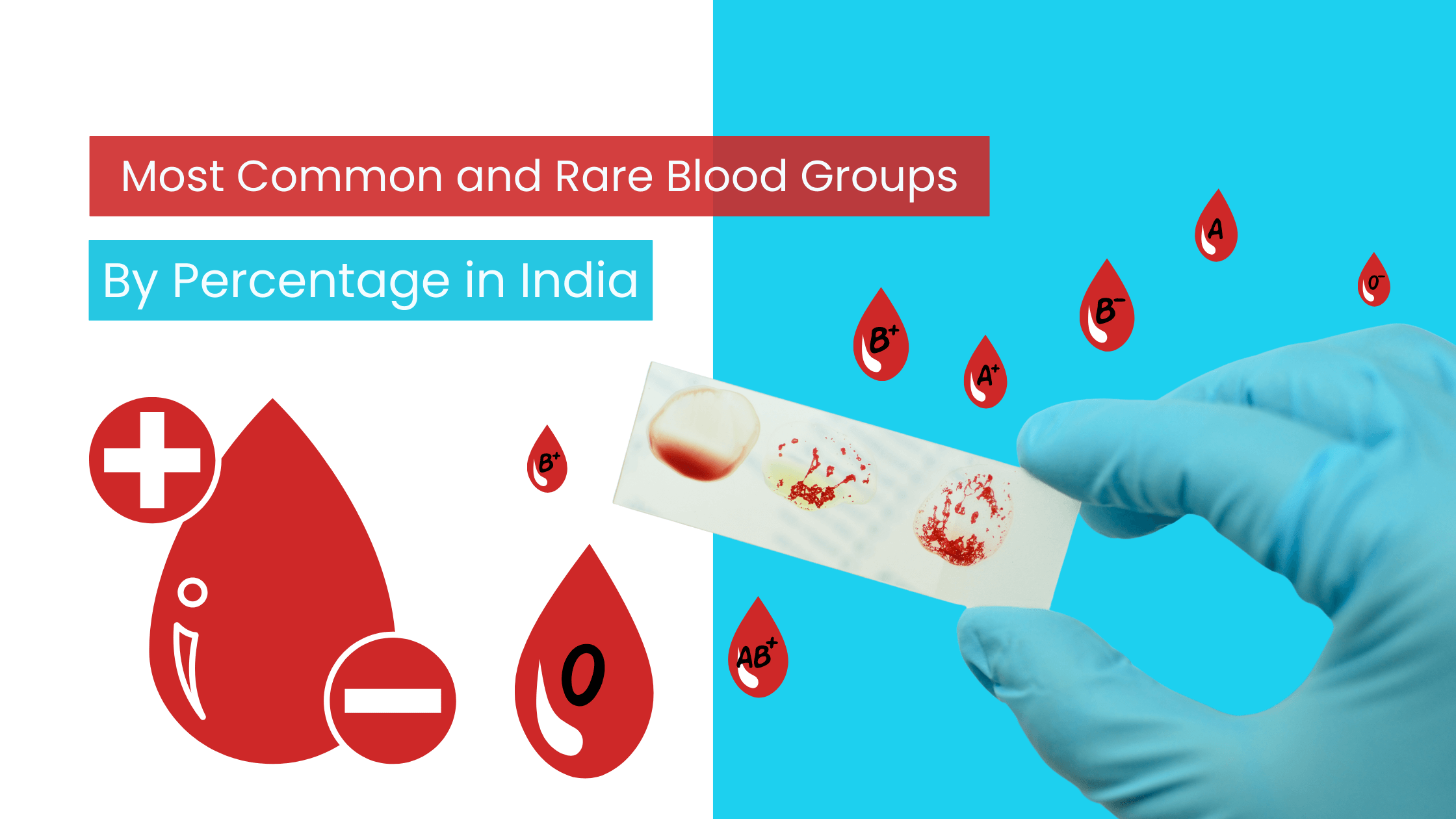Most Common and Rare Blood Groups by Percentage in India
Most Common and Rare Blood Groups by Percentage in India
Blood groups are one of the critical entities of medical science, which significantly determines transfusions, organ transplantations, and emergency treatment in medicine. In India, the distribution of blood groups shows interesting disparities between the relatively common types and those that are very rare Indian blood types. Knowledge of the distribution is important for blood bank management and for swift reaction to healthcare emergencies.
An Analysis of Prevalent Blood Groups Among Indians
India is largely an O+, B+, and A+ blood group nation. Of these, the blood group most common in India is O+, which constitutes about 37% of the population. The second in line is B+, which occurs in almost 33% of the population. A+ is another very common group occurring in almost 22% of the population. And though not as common, AB+ still constitutes 5%.
The widespread prevalence of these blood groups makes them easily available in blood banks. In addition, the universal donor potential of O+ for people with positive blood types also brings forth much demand in emergencies.
Rare blood types in India have been a problem left unnoticed.
Rare blood type in India stands at the opposite end of the pole, again. The incidence of these groups is far lower than the population, thus posing a special challenge in medical scenarios.
- India's rarest blood group is AB: only 0.1% of the population has this blood type.
- Then there's B-, in addition to A, which are relatively rare, with both making up about 1%.
- O, Though a universal donor, it is a rare antigen found in only 2% of the population.
- Rh-null, also called Golden Blood, is the rarest blood type in the world, and it is very scarce in India because only a few cases have been documented.
Rare blood groups in India mirror the genetic diversity and different ancestral backgrounds of the entire Indian population. The rare Indian blood groups will often need extra attention above that given to other blood groups in emergencies, such as Rh-null and AB-.
A country with rare blood types.
Some blood groups are rare for genetic and demographic reasons. For instance, those blood groups are inherited characteristics; thus, the genetic makeup of the specific groups is what usually determines their frequency. For instance, the distribution of specific aboriginal or isolated populations may vary. The Rh-negative factor is much less common in India as compared to many countries in the West. Thus, blood groups O-, B-, or AB- are available only in limited quantity. This very rarity creates problems in medical emergencies for individuals who require Rh-negative blood.
Need for awareness and preparedness
The scarcity of rare blood in India has necessitated setting up several campaigns that will enhance their accessibility. Registries for rare donor blood are the main focus of these organizations to build efficient transport from the donor to the recipient. In addition, campaigns and education on blood donation serve to fill gaps in the demand-supply imbalance. Blood storage technologies and synthetic alternatives are further researched on how they can remedy the situation with rare blood types. However, the participation of the community continues to be the crux because by itself the technology cannot suffice.
The Importance of Every Drop from Plentiful to Rare
One doesn't have to be an uncommon blood group to make a contribution to blood transfusion in the health system. O+ and B+ groups, Common blood groups in India will help cover the general need, while the rare types in India will save lives in stark emergencies. Such a well-designed promotional program will directly develop an effective structure under which the patient will always receive much-needed blood on time. It would be natural and logical that under such a case if the variant abnormality of blood type and type-specific problems particular to them leading to the rarest types can be accurately shown, the difference can be made.
Act as a contributor with great cause: Your contribution to blood group deficiencies
Not only is this a very good thing, but it is everyone's responsibility. So if you donate regularly and encourage others, you contribute a lot to filling the gap between the demand and supply of blood in India. Rare blood groups should be registered with special donor registries so that blood can be searched for when it is most needed. Your contribution may make the difference for someone between life and death; let's ensure that no patient has to struggle to get a compatible donor, especially the rare blood groups in India.
